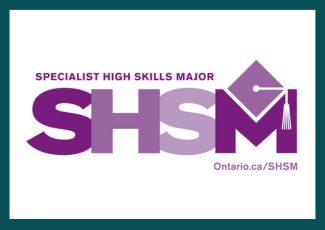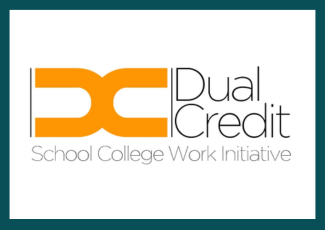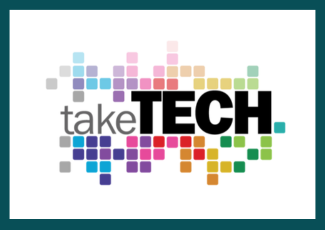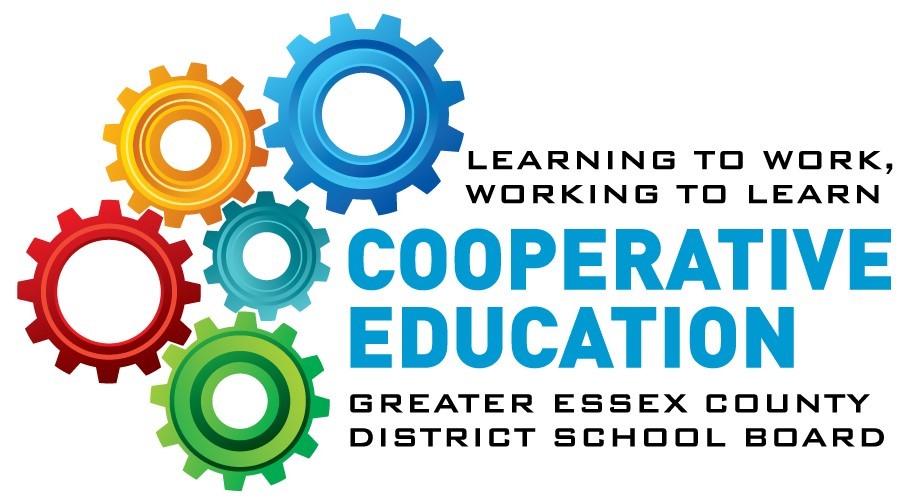What is Co-op Education?
The Greater Essex County District School Board (GECDSB) offers a cooperative education (co-op) program to extend secondary students' learning experience outside of the classroom. Learn how students can apply for co-op and the many benefits employers gain from supporting students career journey.
What the co-op program offers
Students who participate in the co-op program will earn credits towards their secondary school diploma while gaining experience in the workplace.
Why Students take Co-op
With co-op, students can explore their future career interests in any industry, business or community setting to see if it's a good fit. Benefits students experience in co-op include:
- Explore career choices
- Increase awareness of workplace opportunities
- Develop transferable skills that are essential
- Apply classroom theory to workplace experience
- Experience the realities of the world of work
- Build a network for future employment
- Make a smooth transition to life after high school
- Earn up to two co-op credits towards the 18 compulsory credits needed for a high school diploma
- Earn credits toward the 12 optional credits needed for a high school diploma
Benefit to Employers
Are you interested in taking a GECDSB COOP student or want more information about the process? Please email us at [email protected].
If you are an employer who is considering taking on co-op students at your workplace, you will gain the following benefits:
- Contribute to career education
- Contribute to the development of your workforce
- Develop supervisory skills among your staff
- Promote positive attitudes toward the organization
- Promote awareness of job opportunities
- Become active in community partnerships
- Give your staff an opportunity to share their experiences and improve their mentorship and leadership
Applying as a Student
Contact your co-op teacher or guidance counselor at your secondary school for more information.
Interview with co-op teacher
After you complete the application form, you will be interviewed by your co-op teacher to help match you to placements based on your interests. They will provide a list of placement options for you to apply for. If you have a particular workplace in mind, you can suggest it and have the placement be assessed by your co-op teacher.
How to apply for competitive centralized placements
Students can apply for competitive centralized placements through your co-op teacher and go through a competitive interview process by the employer. If you are not selected for the first placement you apply for, you may choose an alternate co-op placement and try again.
Competitive Centralized Program
Beyond the co-op placements students receive through their co-op teachers, the Competitive Centralized Program offers GECDSB students the chance to take placements at highly sought-after companies. Learn about what it takes to apply and be selected for this program. For a list of Competitive Centralized placements, please contact the co-op teacher at your school.
Roles and responsibilities
Learn about the roles and responsibilities that are required for co-op students, teachers and their employers.
Your role as a co-op student |
|
If you are a co-op student, you must:
|
Your role as a co-op teacher |
|
If you are a co-op teacher, you must:
|
Your role as an employer |
|
As an employer supporting co-op students, there are many responsibilities you take on throughout the process. To hire and onboard co-op students, you must:
During the co-op placement, you must:
To ensure co-op students respect and abide by your workplace regulations, you must:
|
Commonly asked questions
Review the following commonly asked questions by students, teachers and employers for our co-op program.
Do students get paid? |
| Students do not get paid during their co-op placements. However, students will earn secondary school credits towards their diploma. Some employers may provide a modest honorarium to help students with work related expenses, however, this is not common. |
Can students be hired by the employer? |
| Students may be hired by their employer if the position does not interfere with the co-op program. The employer must insure the student during these paid employment hours. |
How do students get to and from the placement? |
| Students are responsible for their own transportation to and from their placement, including all travel expenses. The GECDSB recommends students take public transportation. |
Can co-op hours be used as Community Involvement hours? |
| Students cannot count co-op hours towards their Community Involvement hours. These programs are not the same and focus on different experiences – co-op is for personal work experiences and Community Involvement focuses on volunteer opportunities. |
Are students insured? |
| Students are required to complete the Work Education Agreement (WEA) which ensures students are covered by Workplace Safety Insurance Board (WSIB) while at their placements. |
What if the students don't like their placement? |
| If a student does not like their placement, we recommend speaking to their co-op teacher for guidance and how to maximize their learning and personal growth. Please note that students will have an interview prior to co-op with their co-op teacher to match them to a preferred placement employer. |
What if a student isn't fitting in with their placement? |
| If a student is not adjusting to their placement expectations, the employer has the right to dismiss the student. The co-op program is to provide a realistic experience of the workplace and help them understand what it takes to get and keep a job. If a student is let go from their employer, the co-op teacher and principal will continue to work with the student. If the student is unwilling or unable to change their focus or behaviour, students may lose their co-op credits. However, if the student can make meaningful adjustments, a new placement may be found if time and circumstances permit. |
Who ensures students' safety? |
|
The co-op teacher will provide general safety awareness training during pre-employment classes. The employer is also expected to provide specific safety orientation and ongoing training. Students are responsible for:
|
What happens during a work stoppage, strike, lockout, company lay off, or shutdown? |
| If an employer experiences a work stoppage, strike, lockout, company layoff or shutdown, students and employers will inform the co-op teacher. The co-op teacher will assign alternative work for the students to make sure they complete their co-op hours. If the work stoppage is long, the co-op teacher may have to find an alternate placement for the student. |






